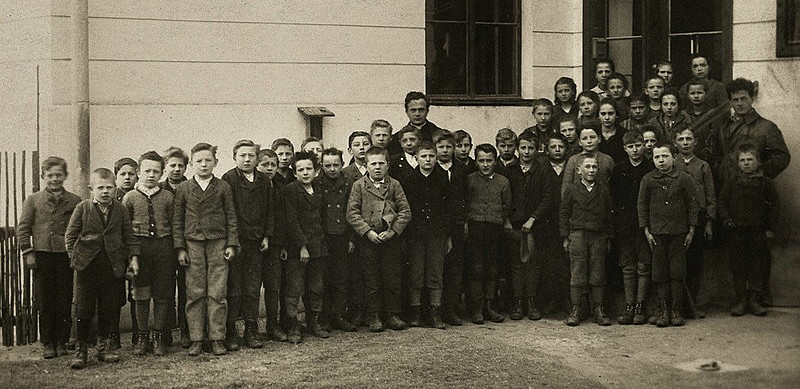“As a general rule the most successful man in life is the man who has the best information.” — Benjamin Disraeli
Author: Greg Ross
Podcast Episode 337: Lost in a Daydream

In 1901, two English academics met a succession of strange characters during a visit to Versailles. They came to believe that they had strayed somehow into the mind of Marie Antoinette in the year before her execution. In this week’s episode of the Futility Closet podcast we’ll describe the Moberly-Jourdain affair, a historical puzzle wrapped in a dream.
We’ll also revisit Christmas birthdays and puzzle over a presidential term.
Outlook

“Climate is your personality; weather is your mood.” — J. Marshall Shepherd, past president, American Meteorological Society, quoted in Andrew Revkin and Lisa Mechaley, Weather: An Illustrated History, 2018
High and Dry

When the steamship Princess May was grounded in 1910 near Sentinel Island in Alaska’s Lynn Canal, the tide was high and the ship’s momentum forced it well up onto the rocks. There it perched at an angle of 23 degrees for photographer William Case at the height of its extremity.
Happily there was no loss of life, and the vessel was eventually refloated and returned to service.
Apt

Walt Disney World draws its power from a pylon surmounted by a circular steel tube and two elliptical rings.
The whole arrangement weighs 30,000 pounds.
A Rare Voice
Only one castrato made solo recordings — Alessandro Moreschi performed for the Gramophone & Typewriter Company in 1902 and 1904, when he was in his mid-40s. For 30 years he had sung as first soprano in the Sistine Chapel Choir, but in 1903 Pius X ordered that the remaining castrati be replaced by boys. He died in 1922 and lies in Rome.
The Haidbauer Incident

In 1926, while working as a schoolteacher in Otterthal, Austria, Ludwig Wittgenstein is alleged to have struck an 11-year-old schoolboy, Josef Haidbauer, so that he collapsed unconscious. The incident was reported to the police, and a judge ordered a psychiatric report, but nothing more is known about the case. Ten years later Wittgenstein appeared in the village to ask the forgiveness of children he had hurt. He wrote in a notebook, “Last year with God’s help I pulled myself together and made a confession. This brought me into more settled waters, into a better relation with people, and to a greater seriousness.”
An Early Mark

Inscribed on the Temple of Poseidon at Cape Sounion, southeast of Athens, is the name BYRON. Possibly the poet carved it during his first visit to Greece at age 22, before he became famous. He later wrote:
Place me on Sunium’s marbled steep,
Where nothing, save the waves and I,
May hear our mutual murmurs sweep …
But there’s no definite evidence that he carved it himself.
Punctuation
Greed
My life is full, indeed, of gloom.
I’ve naught, you see; just this small room.
I need more wealth — that’s misery.
What joys in great renown! What glee!
The mace and throne I long to own.
No crown too grand for me alone.
Contentment
My life is full, indeed!
Of gloom I’ve naught, you see.
Just this small room I need.
More wealth? That’s misery.
What joy’s in great renown?
What glee, the mace and throne?
I long to own no crown.
Too grand for me alone.
— Mary Youngquist
(David L. Silverman, “Kickshaws,” Word Ways 5:3 [August 1972], 168-181.)
A Confusing Country
Philosopher Nelson Goodman published this puzzle anonymously in the Boston Post in 1931, at age 24. He later called it “by far the most popular and widely circulated of all my writings.”
All the men of a certain country are either nobles or hunters, and no one is both a noble and a hunter. The male inhabitants are so nearly alike that it is difficult to tell them apart, but there is one difference: nobles never lie, and hunters never tell the truth.
Three of the men meet one day and Ahmed, the first, says something. He says either, ‘I am a noble’, or ‘I am a hunter.’ (We don’t know yet which he said.)
Ali, the second man, heard what Ahmed said, and in reply to a query, answered, ‘Ahmed said, “I am a hunter”.’ Then Ali went on to say, ‘Azab is a hunter.’
Azab was the third man. He said, ‘Ahmed is a noble.’
Now the problem is, which is each? How do you know?
